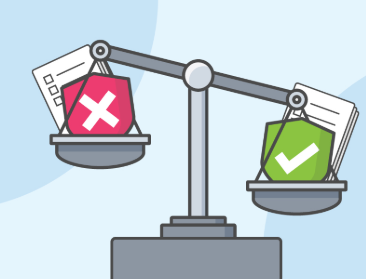When it comes to managing your finances, one area that often gets overlooked is insurance—whether it’s health, auto, or home insurance. Most people focus primarily on the monthly premium, hoping to find the lowest price available. However, a key part of insurance costs that can greatly impact your savings is the deductible. Understanding how to choose smarter deductibles can help you save money without compromising your coverage.
A deductible is the amount of money you agree to pay out of pocket before your insurance kicks in to cover the rest. It acts as a shared responsibility between you and your insurer. While a lower deductible might seem attractive because you pay less when a claim arises, it usually comes with a higher monthly premium. On the other hand, opting for a higher deductible typically lowers your monthly payments but requires more money upfront if you file a claim.
The first step to saving money with smarter deductibles is understanding your own financial situation and risk tolerance. If you have a stable emergency fund and can comfortably cover a higher deductible amount in case of an incident, choosing a higher deductible might be a wise decision. This strategy often results in lower monthly premiums, allowing you to save money each month. Over time, those savings can add up significantly.
For example, let’s consider health insurance. If you select a plan with a $1,500 deductible instead of a $500 deductible, your monthly premium might be considerably lower. If you don’t anticipate frequent doctor visits or medical claims, this can lead to substantial savings. However, if you expect regular medical expenses, the lower deductible might save you money overall. Knowing your healthcare needs is essential to making an informed decision.
Auto insurance works similarly. If you’re a cautious driver with a good record, you might benefit from a higher deductible. Because the chances of filing a claim are lower, you can enjoy reduced premiums without much risk. However, if you live in an area with high traffic or unpredictable weather, a lower deductible might offer peace of mind, even if it means paying more every month.
Another important consideration is how quickly you can access funds to cover a deductible when needed. If you don’t have immediate access to that money, the higher deductible could become a financial burden. Setting aside a specific amount each month into a dedicated savings account designed to cover deductibles can help you prepare for unexpected expenses. This approach helps you stay financially secure while taking advantage of lower premiums.
It’s also helpful to periodically review your deductible choice, especially during annual insurance renewals or when your financial situation changes. Life events such as buying a new car, moving to a different home, or changes in income should prompt a reevaluation of your insurance needs. Adjusting your deductible accordingly can optimize your savings and ensure your coverage matches your current circumstances.
When comparing insurance policies, don’t just focus on deductibles and premiums. Look at the overall coverage, including out-of-pocket maximums, co-pays, and any other fees. Sometimes a plan with a slightly higher deductible but better overall benefits can save you money in the long run. Take the time to read the fine print and ask your insurance agent questions to fully understand the details.
One common misconception is that choosing the highest deductible is always the best way to save. While it can lead to lower premiums, it’s important to balance the deductible amount with what you can realistically afford to pay when needed. If the deductible is set too high and you can’t cover it when a claim occurs, it can lead to financial strain or even delayed repairs or medical treatments.
To make an informed choice, try calculating the total potential annual cost for different deductible options. Add up your estimated annual premiums plus the deductible you might pay in a worst-case scenario. This calculation can give you a clearer picture of the true cost of each option and help you decide which deductible is the smartest choice for your budget.
Another tip is to explore any discounts your insurer might offer for choosing certain deductible amounts. Sometimes, insurers provide incentives for higher deductibles, but other times, bundling different types of insurance or maintaining a claim-free record can unlock additional savings. Don’t hesitate to ask about these opportunities to maximize your cost savings.
It’s also worth noting that some insurance types have minimum and maximum deductible limits set by the insurer or regulatory bodies. Understanding these limits can prevent you from choosing an option that is not available or not practical. Your insurance representative can help clarify these points to ensure your choice is feasible and beneficial.
Besides personal financial benefits, choosing smarter deductibles can also influence how you approach risk management in your daily life. Knowing you have a certain amount to cover before insurance kicks in can encourage you to be more careful and proactive in preventing losses, whether that’s driving safely, maintaining your home properly, or managing your health proactively.
In summary, saving money by choosing smarter deductibles involves a thoughtful balance between monthly premiums and out-of-pocket expenses. It requires a clear understanding of your financial situation, risk tolerance, and insurance needs. By carefully evaluating your options, regularly reviewing your coverage, and preparing financially for potential claims, you can make deductible choices that save you money while providing the protection you need.
Smart deductible decisions not only reduce your insurance costs but also empower you to manage your money better in the long term. The key is to approach this choice with knowledge and a plan, so you don’t just save money upfront but also avoid financial surprises when life happens. With a little research and reflection, you can make deductible decisions that fit your lifestyle and keep your budget healthy.






